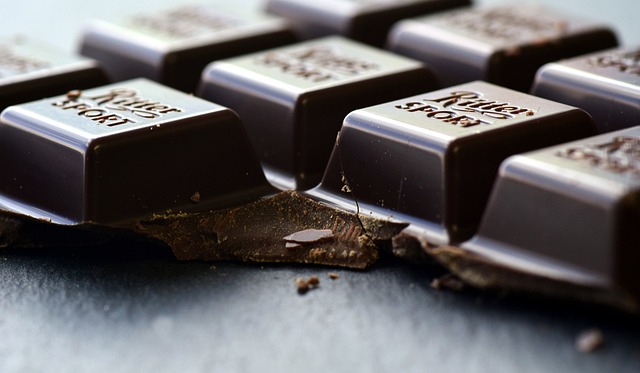
Dark chocolate isn’t just tasty; it’s also good for you! It has a long history and offers many health benefits. In this article, we’ll explore the world of dark chocolate and learn why it’s such a special treat.
History of Dark Chocolate
Dark chocolate has a long and fascinating history that dates back thousands of years. It originated in Mesoamerica, where the ancient Mayans and Aztecs cultivated cacao trees and used the beans to make a bitter, frothy beverage that was reserved for royalty and special occasions. The cacao bean eventually made its way to Europe, where it was transformed into the chocolate we know today.
Nutritional Value
Here is the nutritional value of dark chocolate per 100 grams:
| Nutrient | Amount |
|---|---|
| Calories | 604 |
| Total Fat | 43.06 g |
| Saturated Fat | 24.16 g |
| Monounsaturated Fat | 13.92 g |
| Polyunsaturated Fat | 1.39 g |
| Cholesterol | 5 mg |
| Sodium | 24 mg |
| Potassium | 715 mg |
| Total Carbohydrate | 46.36 g |
| Dietary Fiber | 10.9 g |
| Sugars | 24.23 g |
| Protein | 7.79 g |
| Vitamin A | 50 IU |
| Vitamin C | 0 mg |
| Calcium | 56 mg |
| Iron | 7.3 mg |
| Vitamin D | 0 IU |
| Vitamin B-6 | 0.04 mg |
| Vitamin B-12 | 0.01 µg |
| Magnesium | 228 mg |
Choosing the Right Dark Chocolate
When selecting dark chocolate, it’s important to look for a high cocoa content, ideally 70% or higher. The higher the cocoa content, the more antioxidants and less sugar the chocolate will contain. Additionally, opt for dark chocolate that is minimally processed and free from artificial additives and preservatives.
Benefits of Dark Chocolate
Dark chocolate is not only delicious but also offers several health benefits when consumed in moderation. Here are eight benefits of dark chocolate:

- Rich in Antioxidants
- Dark chocolate is loaded with antioxidants, such as flavonoids, which can help reduce inflammation and protect your cells from damage caused by free radicals.
- Improves Heart Health
- The flavonoids in dark chocolate may help improve heart health by increasing blood flow to the heart, reducing the risk of blood clots, and lowering blood pressure.
- Lowers Bad Cholesterol
- Dark chocolate has been shown to reduce levels of LDL (bad) cholesterol while increasing levels of HDL (good) cholesterol, which can help improve heart health.
- Enhances Brain Function
- The antioxidants in dark chocolate may improve brain function by increasing blood flow to the brain, which can enhance cognitive function, memory, and focus.
- May Reduce the Risk of Stroke
- Some studies suggest that moderate consumption of dark chocolate may lower the risk of stroke by improving blood flow to the brain and reducing the risk of blood clots.
- Improves Mood
- Dark chocolate contains compounds that can stimulate the production of endorphins, which are chemicals in the brain that promote a sense of well-being and happiness.
- Boosts Skin Health
- The antioxidants in dark chocolate may protect your skin from damage caused by UV radiation, improve blood flow to the skin, and increase skin density and hydration.
- Helps Control Blood Sugar Levels
- Despite its sweetness, dark chocolate has a low glycemic index, which means it won’t cause a rapid spike in blood sugar levels. This makes it a better choice than milk chocolate for people with diabetes or those watching their blood sugar levels.
Culinary Uses
Dark chocolate is a versatile ingredient that can be used in a variety of sweet and savory dishes. It can be melted and drizzled over fruits or desserts, chopped and added to baked goods like cookies and brownies, or used as a flavoring agent in savory dishes like chili or mole sauce. Dark chocolate can also be enjoyed on its own as a satisfying and indulgent snack.
A Quick Review
While dark chocolate offers many health benefits, it’s important to consume it in moderation as part of a balanced diet. Too much chocolate, even dark chocolate, can lead to weight gain and other health issues. Aim for dark chocolate with at least 70% cocoa content for the most health benefits.
